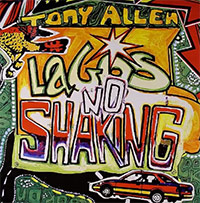Born in Lagos, Nigeria in 1940, Tony Allen taught himself to play by listening to records made by the American jazz drummers Art Blakey and Max Roach.
He began working as a professional musician in 1960, gigging around Lagos and variously playing highlife and jazz.
Tony Allen has long been acknowledged as Africa’s finest kit drummer and one of it's most influential musicians, the man who with Fela Anikulapo Kuti created Afrobeat - the hard driving, James Brown funk-infused, and politically engaged style which became such a dominant force in African music and whose influence continues to spread today.
Allen started out as a jazz drummer. “Art Blakey was my big influence, and before that, before I started club crawling, it was Gene Krupa. When I started, I tried to play like Gene Krupa. Then I discovered Blue Note Records and Art Blakey’s Jazz Messengers - it opened up another style to me. Max Roach was important too. I studied some lessons he wrote in Down Beat magazine about how to play high-hats. Most drummers in Lagos never used them, they were just a decoration on the kit, and I’d always thought that was something incomplete.”
Tony Allen was playing with the Western Toppers when he met Kuti in 1964. “Fela had been presenting a jazz records programme on NBC (Nigerian Broadcasting Corporation) on Friday nights. He decided he wanted to form his own jazz band and play the music himself in the clubs. He’d tried out several drummers, but none of them were what he was looking for. He began to think there was no-one suitable in Africa. Then someone recommended me to him. I auditioned - and he asked me if I’d learnt to play in the USA! I had the style he wanted. We played strictly jazz together for about a year, as the Fela Ransome Kuti Jazz Quartet, before we started Koola Lobitos.”
In
1969, Koola Lobitos made an extended visit to the US, where they lived a hand to mouth existence. “The living conditions were rough,” says Allen. “We started on the east cost, where there were lots of Nigerian students, and we did well there. Then we went west, via Chicago, to San Francisco and Los Angeles.” Audiences, which were still largely composed of Nigerians, grew smaller.
Kuti’s political consciousness, nurtured by his politically active parents back home - and soon to become a defining feature of Afrobeat - was sharpened in the US.
Once back in Lagos, Kuti renamed the band Africa 70. With Allen forging the music’s vibrant signature rhythms, and Kuti its incendiary lyrics, the duo had, within a few years turned Afrobeat into a style rivalling the then reigning juju and highlife in popularity.
Allen stayed with Kuti for close on 15 years, from 1964-1980. He played on all Afrika 70’s albums up until 'V.I.P. - Vagabonds In Power'.
In 1975, Allen recorded his debut album, 'Jealousy', the first of three made with Afrika 70 and produced by Kuti. 'Progress' followed in 1976, 'No Accommodation For Lagos' in 1978. But by 1978 he was ready for a change of scene, and a year later he parted company with Kuti.
Allen spent the next few years in Nigeria, and from 1981-83 led another Afrobeat band, the Mighty Irokos. The group enjoyed local success, but Allen had tasted international breakthrough with Afrika 70, and he had his eyes on a bigger stage. In 1984 he left Lagos for London, living there for eighteen months before moving to Paris, where he lived with his family till 2020.
Throughout the 1990s Allen was a sought after session drummer and he collaborated with a range of artists including Randy Weston, Groove Armada, Air, Charlotte Gainsbourg, Manu Dibango and Grace Jones. During the years since Fela's death in 1997 Allen has become recognised as Afrobeat's torch bearer and he is held in reverence by musicians and fans alike.
"Music is my mission,” sayd Allen. “I never get satisfied and I’m still learning from others. The musical world is very spiritual, and I don’t think there’s an end to it. As musicians, it’s our mission to keep going.”
On April 30, 2020, Tony Allen died in Paris. Tributes came from musicians and producers including Flea, Peter Gabriel, Jeff Mills, Nigel Godrich, Sean Lennon, and Damon Albarn.
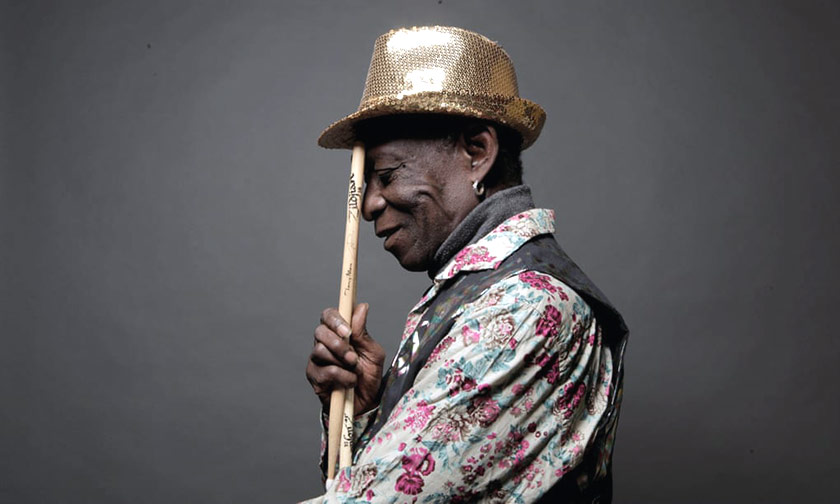
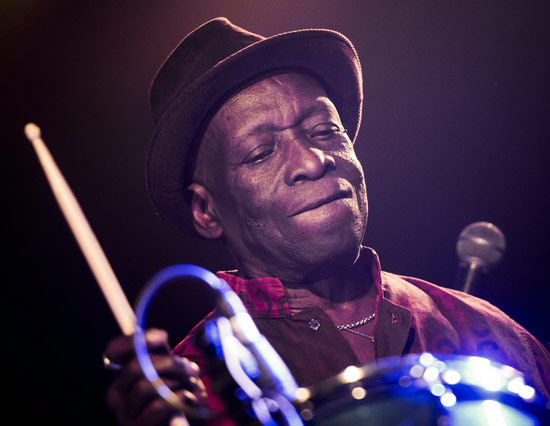
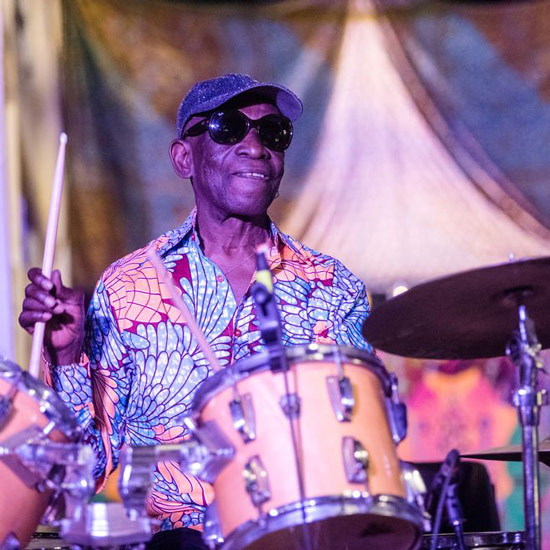
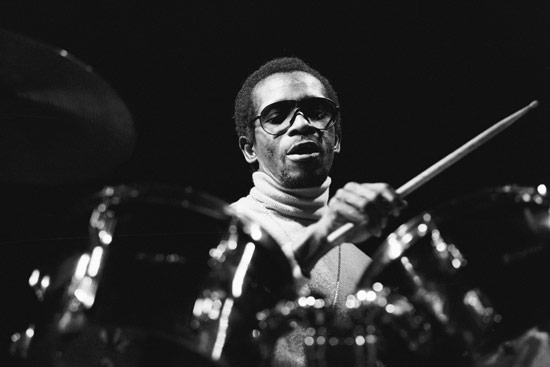
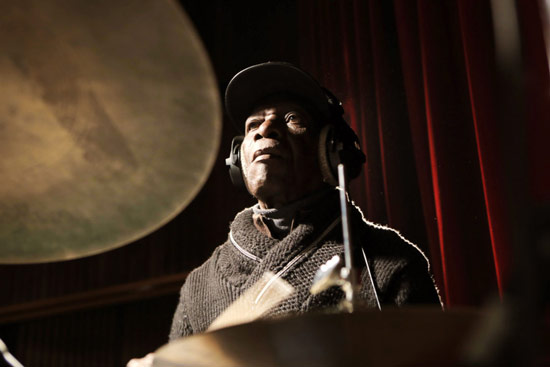
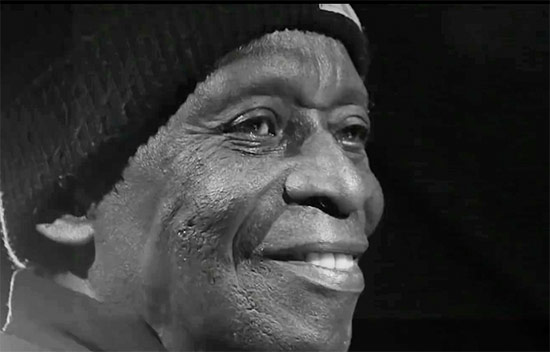
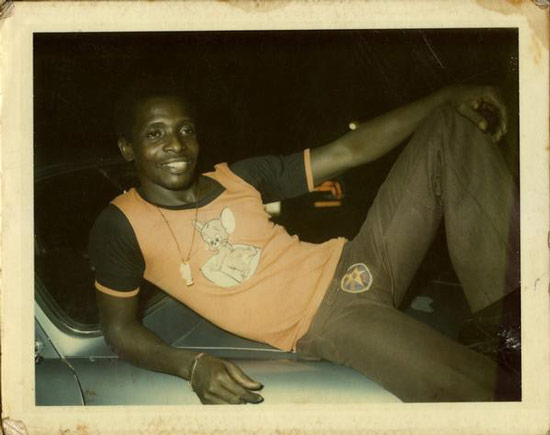
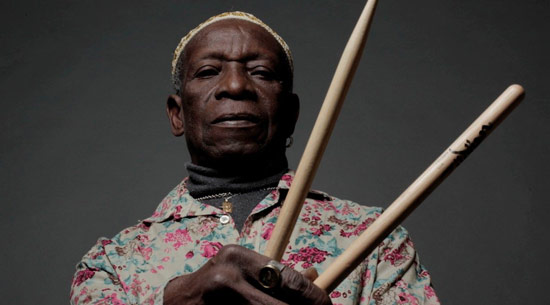
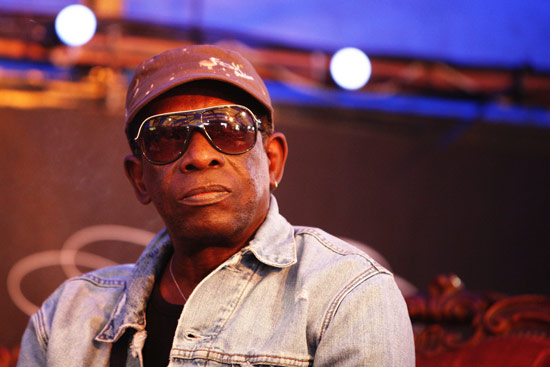
.jpg)
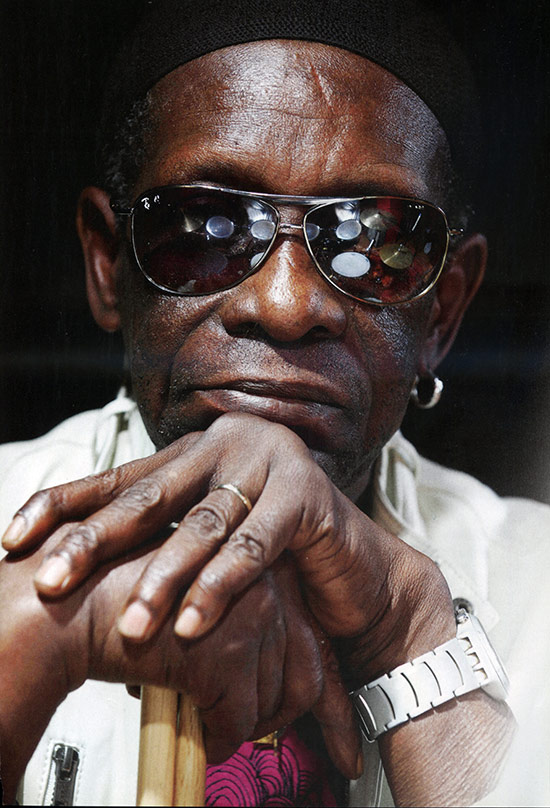

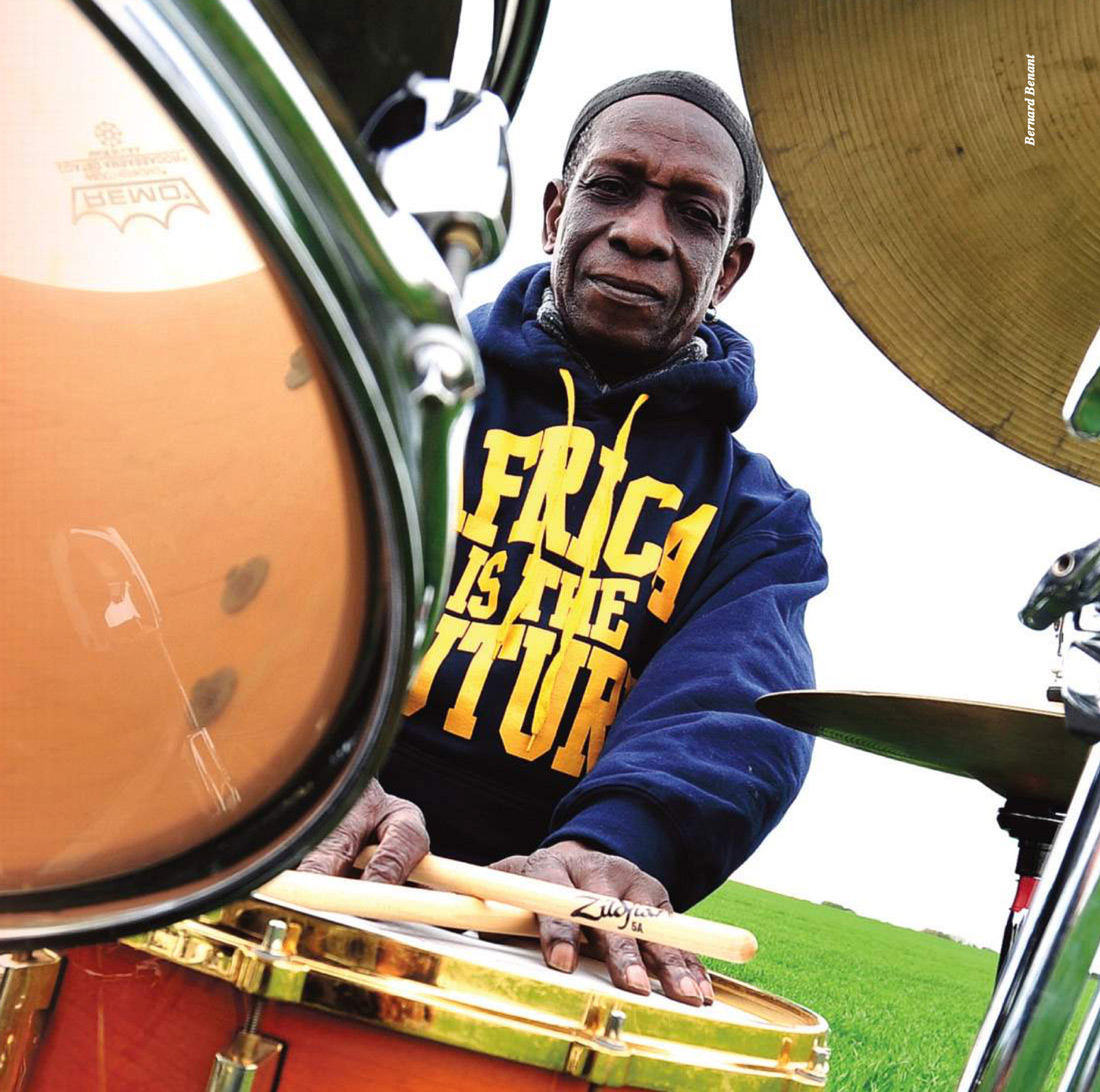
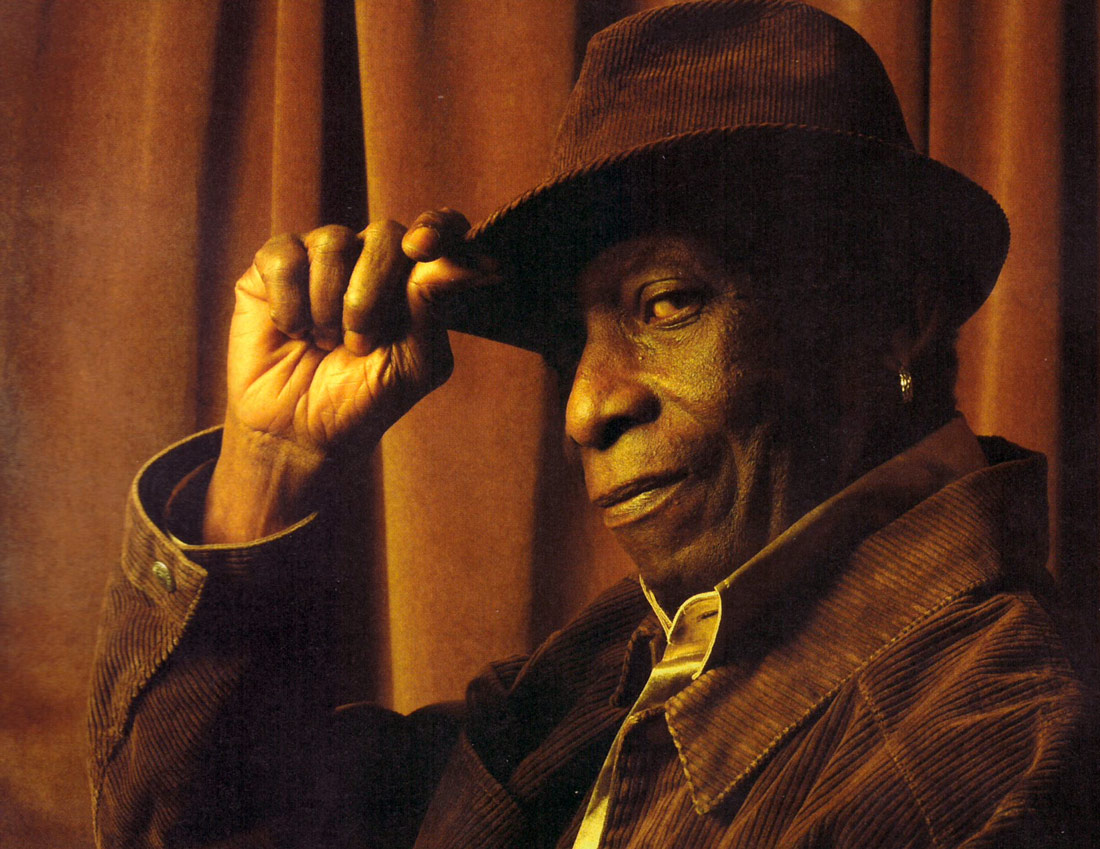
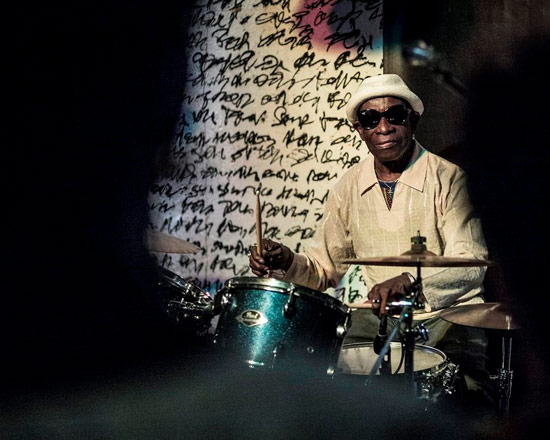
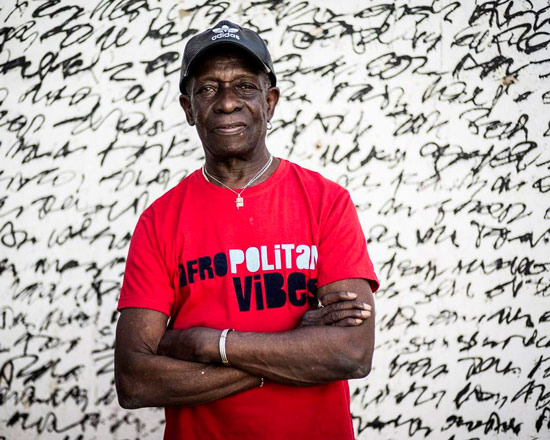
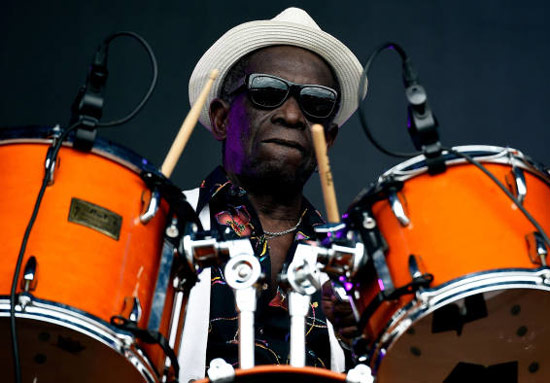
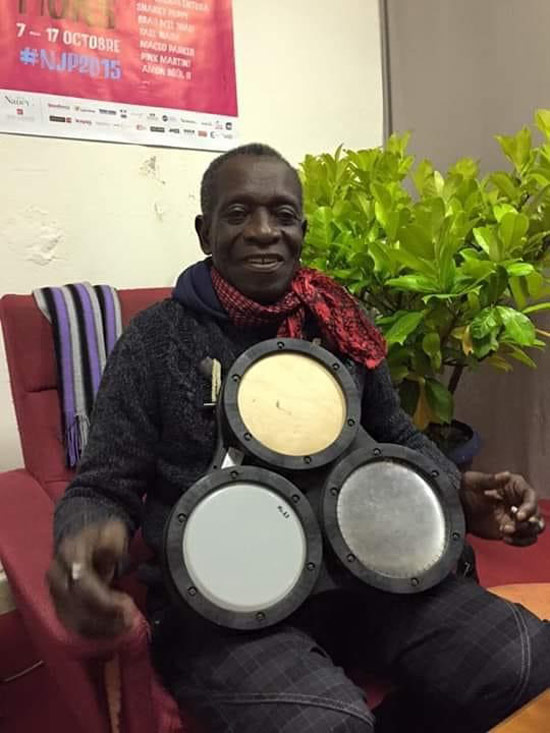
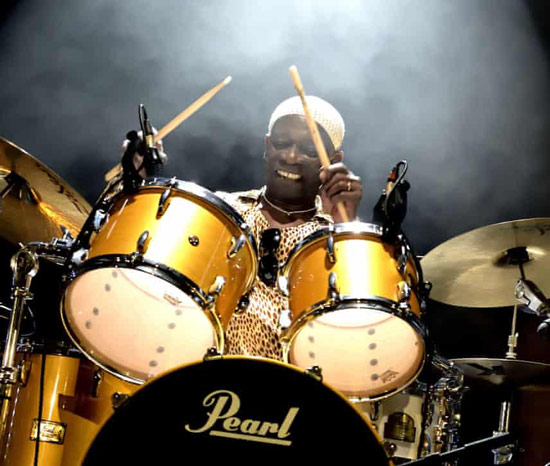
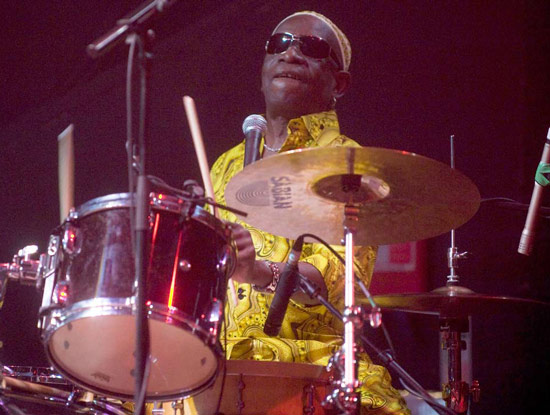
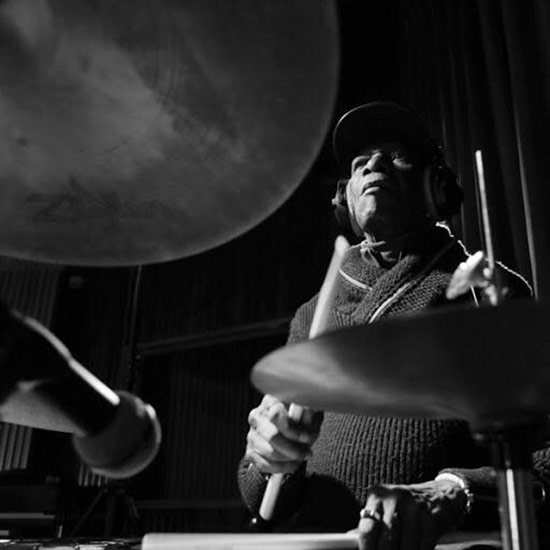
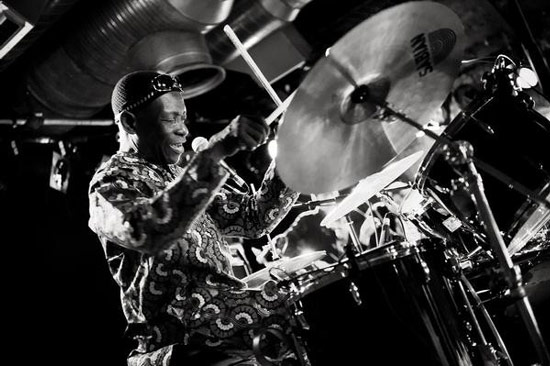
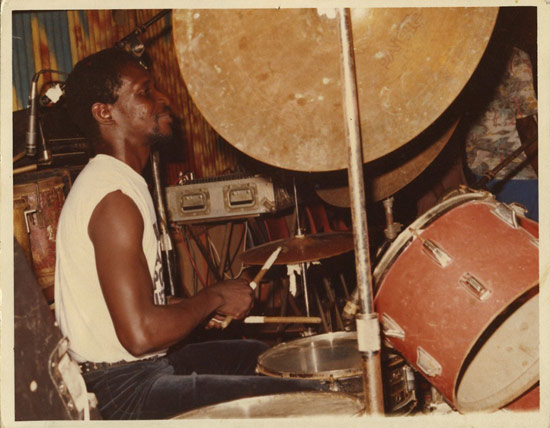
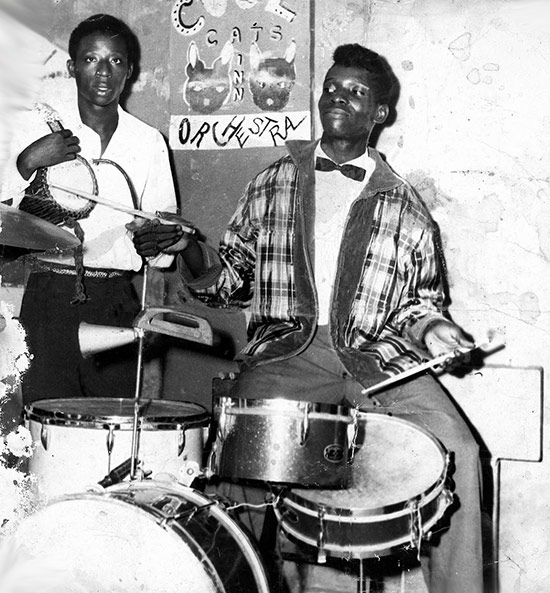

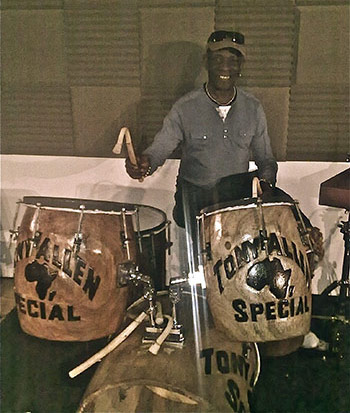 thanks for your visit!
thanks for your visit!










